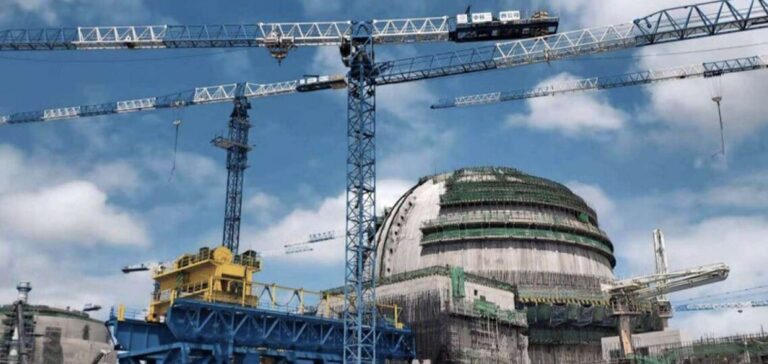The Karachi nuclear power plant and its Reactor 3 have completed ahead of schedule the hot functional tests that began on November 4, 2021, announces the China National Nuclear Corporation (CNNC).
Karachi nuclear power plant nears completion
This reactor is the second foreign Hualong One unit to enter the “fuel loading phase”. This test battery, carried out by China Zhongyuan Engineering Corporation, was launched on September 13, 2021.

The tests carried out simulate the temperatures and pressures to which the reactor systems will be subjected during normal operation. These tests are carried out before the nuclear fuel is loaded. They involve ensuring that cooling circuits and safety systems function as they should.
First exports of Hualong One reactors
Like Karachi 2, Karachi 3 is a 1100 MW Hualong One unit supplied by CNNC. These two units are the first exports of the Hualong One, sold on the international market under the name HPR1000. The first example of Hualong One has been in operation in China’s Fujian province since early 2021.
Eight units are under construction or in operation at home and abroad. In addition, the construction of the Karachi units has stimulated the development of the Pakistani economy, providing over 10,000 direct jobs.






















